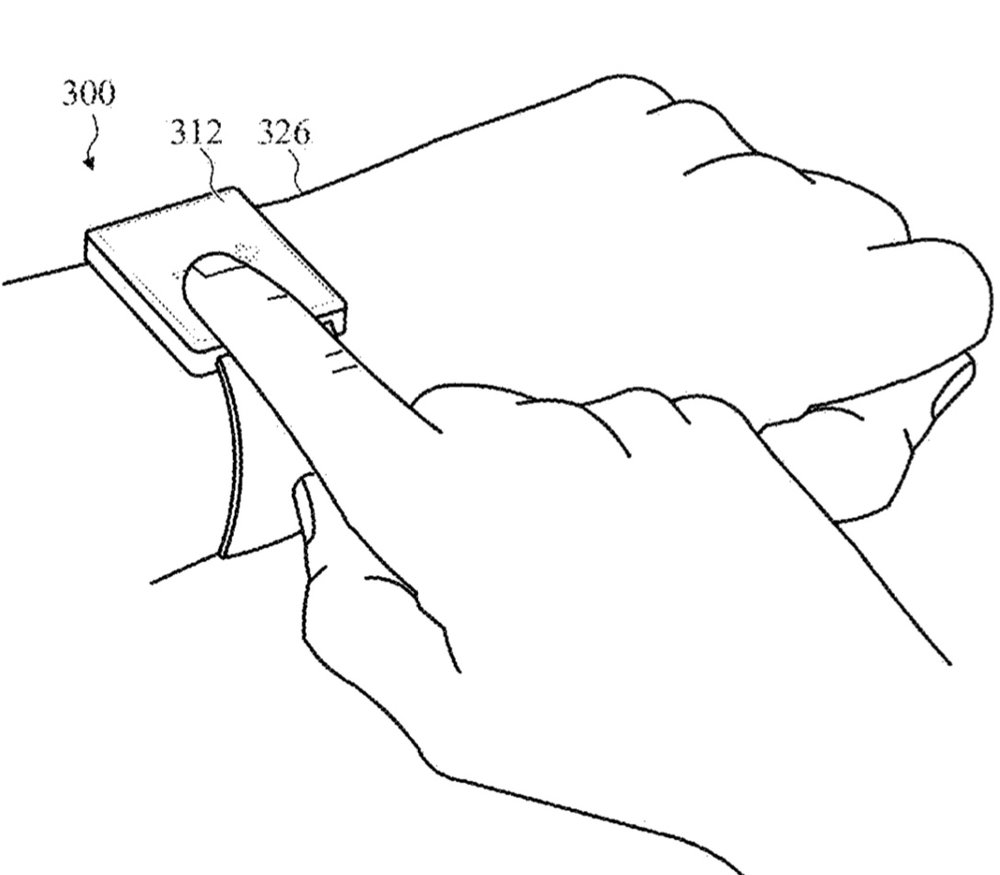Future Apple Watches could come with watchbands that automatically adjust their tightness, or allow you to do so with the touch of the screen, to fit different activities. Apple has filed for a patent (number 10,149,521) for “dynamic fit adjustment for wearable electronic devices.”
Per the invention, a tensioner associated with a smartwatch can control one or more actuators that are mechanically coupled to either the housing or to a band attached to the wearable electronic device. In one example, in response to a signal to increase the tightness of the band, the tensioner can cause the actuator(s) to increase the tension within the watch band.

In the patent filing, In many cases, watch bands may have limited fit adjustment increments available. For example, some bands have an incrementally user-adjustable size (e.g., a buckling clasp, pin and eyelet, etc.) whereas other bands have a substantially fixed size, adjustable only with specialized tools and/or expertise (e.g., folding clasp, deployment clasp, snap-fit clasp, etc.). Still other bands may be elasticated expansion-type bands that stretch to fit around a user’s wrist.
In the patent filing, Apple notes that conventional watch bands may catch, pinch, or pull a user’s hair or skin during use if the band is overly tight. In other cases, watch bands may slide along a user’s wrist, turn about a user’s wrist, or may be otherwise uncomfortable or bothersome to a user if the band is overly loose. These problems can be exacerbated during periods of heightened activity, such as while running or playing sports.
What’s more, Apple says that adjusting the size or fit of conventional watch bands often requires multiple steps, specialized tools, and/or technical expertise. In other cases, sizing options available to a user may be insufficient to obtain a proper fit. In still further examples, the fit may be different and/or may be perceived to be different given certain environmental (e.g. temperature, humidity) or biological conditions (e.g., sweat, inflammation).
As a result, users of conventional wristwatches and/or fitness/health tracking devices may select a tolerable (although not optimally comfortable) fit, reserving tight bands for fitness/health tracking devices and loose bands for conventional wristwatches. However, some wearable electronic devices (such as smart watches) may be multi-purpose devices, providing in one example both fitness/health tracking and timekeeping functionality.
Accordingly, a user may prefer the fit of a smart watch to vary with use. For example, a user may prefer a looser fit in a timekeeping mode and a tighter fit in a fitness/health tracking mode. Apple says there’s a need for systems and methods for dynamic adjustment of the fit of wearable electronic devices.
Of course, Apple files for — and is granted — lots of patents by the U.S. Patent & Trademark Office. Many are for inventions that never see the light of day. However, you never can tell which ones will materialize in a real product.
